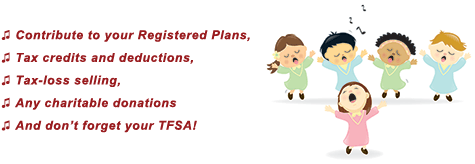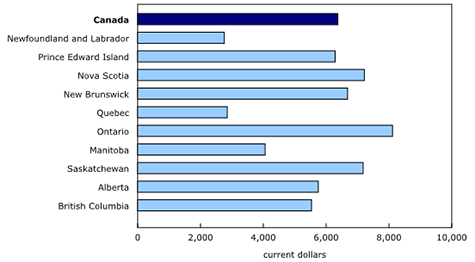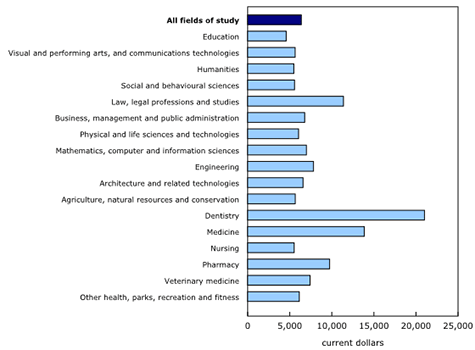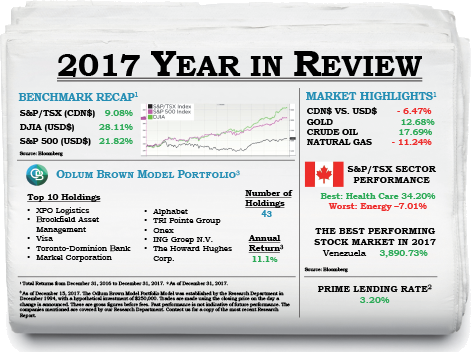

New Year, New Game Plan?
by Shelly Appleton-Benko | December 31, 2018
New Year’s resolution (noun): a promise to do something differently in the New Year.
Goodbye 2018. I wish I could say it was lovely, but let’s face it, the markets were naughty. We all expected a little bit of growth, a few dividends and maybe a couple of double baggers. Yet everyone was disappointed in one way or another. The question is, what do we do now?
The answer is simple. Set out a game plan to organize the factors of your financial future that you can control.
Write down small, specific goals that are smart and achievable. Share these goals with trusted friends. Send yourself an email or put it in your calendar to remind yourself to check in on the progress in three, six or nine months down the road (this really works and is quite easy to do). Finally, find yourself an accountability buddy that can help you stay on track. That way the markets can go sideways, the governments can go broke, interest rates can go up and we will all still have our financial goals intact.
Remember, not all asset classes are poor performers in a slow economy. There is always opportunity for corporations to return value on investments. So, when you are setting your New Year’s resolutions, be sure to include the task of setting up some financial goals and stay ahead of the pack when the markets return to a somewhat normal pattern.
From our families to yours

Five Golden Rules
by Shelly Appleton-Benko | December 11, 2018
♫ On the fifth day of Christmas, my true love gave to me ♫ five golden rings, ♫ four calling birds, ♫ three French hens, ♫ two turtle doves and ♫ a partridge in a pear tree. ♫
Now that we have that song swirling in your head (hopefully it doesn’t last the whole day!) here is our adapted verse that we are calling the Five Golden Rules; a few important points to consider for year-end tax planning:

♫ Contribute to your Registered Plans
RRSP
While you have until March 1, 2019 to make an RRSP contribution for your 2018 tax year, consider contributing early in the year to take advantage of compounding tax-free growth.
RESP
For those eligible, be sure to contribute to your child or grandchild’s Registered Education Savings Plan to benefit from the Canada Education Savings Grant.
RDSP
A registered disability savings plan may be established for a person who is both eligible for the Disability Tax Credit and under the age of 60.
♫ Tax credits and deductions
Certain expenses may be eligible for tax deductions or credits including (but not limited to): childcare expenses, medical expenses, moving expenses and home accessibility tax credits. Be sure to keep your receipts.
♫ Tax-loss selling
Sometimes selling an investment at a loss can benefit your taxes owed in April. Please contact us if you are wondering if this applies to you.
♫ Any charitable donations
You have until December 31, 2018 to receive charitable donation credits against your 2018 taxes.
♫ And don’t forget your TFSA!
While there is no deadline for TSFA contributions, consider topping this up to your eligible maximum amount in order to get these funds working for you as soon as possible.
 Santa Came Early
Santa Came Early
by Shelly Appleton-Benko | December 5, 2018
Effective January 1, 2019, the Tax Free Savings Account (TFSA) annual contribution limit will increase by $500 to $6,000.
As you may know, you contribute after-tax dollars to your TFSA, but once that money is contributed, all the income and growth are tax-free. When it’s time to withdraw those funds, they are tax free; which is great news for income-tested benefits and tax credits like the Goods and Services Tax (GST) and Old Age Security (OAS).
Are you over 28 years old and never had a Tax Free Savings Account? If so, your total contribution room is cumulative and you can now contribute up to $63,500 to your account. So, let’s get that $6,000 working for you. Consider making a one-time deposit, or spread it out over the year by putting in $500 a month. Please feel free to contact us to learn more about TFSAs.
Black Friday To-Do List
by Shelly Appleton-Benko | November 22, 2018

Someone recently asked my thoughts on the current state of the economy. That is a big question and there is a lot to think about these days, so I made a list to share with all of you.
First of all, it is important to consider how interest rate changes may affect you personally. Are you locked into your mortgage? Do you owe money on personal lines of credit or credit cards? Now is the time to make some changes to the payment structure of these products, because the rates are definitely rising and you need to be prepared for increased payment amounts in the future.
Secondly, there always seems to be some new market jargon circulating, and this year it is “Global Ideas Economy.” Sounds big, right? Actually, we have been talking about this concept for a while in our portfolios. Companies that have global reach can achieve global growth efficiently and are less affected by risks incurred by individual countries and economies. An easy way to understand this is Starbucks – a caramel macchiato in Delhi tastes the same as one in Vancouver.
Third, exercise your right to make a difference in the amazing country that we live in and vote! Whether you agree with the decision to hold the vote or not, send in your ballots!
The recent market correction has also given us an opportunity to revisit some of our favourite companies at decent prices. After all, it is shopping season! At the same time, we continue to review your accounts for potential capital gains and losses that can make a difference to your overall tax liability come next April. Out with the old and in with the new ideas!
Lastly, before the Grinch gets a new onesie, consider helping those less fortunate with an in-kind stock or charitable donation. Let’s lift up those in need and celebrate the season ahead.
Education Planning
by Shelly Appleton-Benko | October 15, 2018
Many clients ask us, “How much will I need?”
The question may refer to retirement savings rate, retirement income need, a down payment for a house or the eventual cost to send kids to school. The answer is different for each of us.

There are over 2 million students in Canadian universities and colleges. Yearly tuition at a Canadian university or college can easily cost $5,000 - 7,000 for an undergraduate degree and that does not include the cost of books, accommodation, food, transportation, etc. If you plan to study internationally, pursue a specialized program or go on to a post graduate degree then you can expect much, much more.
The following are the weighted average undergraduate tuition fees for Canadian full-time students, by field of study in 2016/2017:

 Source: Statscan
Source: Statscan
It is important to get an early start on saving. Planning for these educational expenses today will help reduce some of the financial pressures of tomorrow. An RESP is a great vehicle to help. Ask us about getting one set up for your children or grandchildren.
Happy Thanksgiving
by
Shelly Appleton-Benko | October 5, 2018
.jpg?sfvrsn=7bdb98b8_0)
All About Your Protection
by Shelly Appleton-Benko | September 20, 2018

There is an inherent risk to having information available at your fingertips and the cost can be enormous if you experience a data breach of your personal and/or financial information.
At Odlum Brown Limited, we are serious about keeping your information private. We continuously review and upgrade our practices to ensure that any personal information that is transmitted between you and our offices is safe and secure; resulting in the recently introduced use of Sharefile. Sharefile is a secure file transfer service designed to protect documents with personally identifiable client information – providing you with quick and safe access to your financial information at the click of a button.
Interested in learning more about protecting your digital assets? We will be hosting a lunch and learn on cyber security next month and would love to hear if you are interested in attending. Let us know and we will send you the details!
 Financial ABCs
Financial ABCs
by Shelly Appleton-Benko | September 12, 2018
We are all students of life and with school back in session, we thought now would be a great time for a refresher on some basic ABCs about reaching your financial goals.
A game plan – Where are you now? Where do you want to be in five years? 10 years? 20 years?
Like any goal planning, it is important to have a game plan and make some specific short-term and long-term goals. For example, purchase a home; start a business; fund your child’s post-secondary education; travel during retirement; or leave a legacy. Each goal may have a different timeline, but it can be beneficial to plot them out to see how your financial path might unfold.
Build a budget and stick to it! If you haven’t done so already (or revisited it in a while), develop a realistic personal budget that allows you to reach your specific goals, but also lets you to live life. Whether you’re a student or retiree, this can be helpful to manage your cash flow. Be sure to include investing and saving as important components of your budget.
Combat Debt – This is particularly true for younger folks just starting out – student debt, car loans or mortgages – and it likely means holding off on those “wants” and focusing on the needs. Remember the old adage short-term pain equals long-term gain!
Improving financial literacy can help you make better decisions and set you on the path to reach your financial goals.
In the Community
by Shelly Appleton-Benko | July 27, 2018
.png?sfvrsn=bcf98b8_0)
Property Tax Time
by Shelly Appleton-Benko | June 21, 2018
 “Don't put off until tomorrow what you can do today.” ― Benjamin Franklin
“Don't put off until tomorrow what you can do today.” ― Benjamin Franklin
Property taxes pay for city services to make our community a livable place. They fund things like street lights, police, fire department, schools, parks and many other resources that we may take for granted. By pooling our money together, we can fund projects as a community that have large price tags but which we all can benefit from.
That being said, your property tax bill can be overwhelming at this time of year. There is a way to defer property tax owed, but a decision to do so should be considered carefully.
The Government of British Columbia offers qualified homeowners two property tax deferment programs. These are low-interest loan programs designed to help homeowners pay their annual property taxes on their principal residence.
To enroll in the program, you’ll be charged a simple interest rate. The rates are set every April 1 and October 1.
Do you qualify?
You must have and maintain a minimum of 25% equity in your property to qualify for the Regular Program and 15% for the Families with Children Program. Below are some of the basic eligibility requirements. Complete information can be found on the government’s website.
To qualify for the Regular Program, you must be:
- 55 or older during the current year,
- a surviving spouse of any age or
- a person with disabilities.
The current interest rate for this program, until September 30, 2018, is 1.2%.
To qualify under the Families with Children Program, you must be a parent, stepparent or financially supporting a child. The current interest rate for this program, until September 30, 2018, is 3.2%.
To defer or not to defer?
While deferring your taxes at a low interest rate can help with increased cash flow, remember that there are limitations. It is debt! By participating in these programs, you incur a lien on your property, which may limit mortgage renewal or refinancing options.
The information contained herein is for general information purposes only and is not intended to provide financial, legal, accounting or tax advice to be relied on without an individual first consulting with their financial advisor to ensure the information is appropriate for their individual circumstances.
Graduation Time
by Shelly Appleton-Benko | June 7, 2018

Congratulations to all of the 2018 high school graduates, as well as the parents and grandparents who supported them along the way! If your child or grandchild is heading off to post-secondary in the fall, and you’ve been tucking money away into their Registered Education Savings Plan (RESP) over the years, you may now need to access those funds.
What can I use the RESP money for?
Your child/grandchild must be enrolled in a qualifying education program at a designated institution. Almost all full‐time and some part‐time post‐secondary educational institutions are eligible. There are restrictions on the use of the RESP money. The Education Assistance Payment (EAP) may be used towards education expenses in Canada or abroad which includes tuition, books, accommodation, some transportation and general living expenses.
What about tax?
When your child/grandchild uses the RESP funds, a portion of the withdrawals are taxable under the child’s name. As most students have minimal income, the combination of low tax and large education credits typically result in negligible tax owing. This income from the RESP is known as an Educational Assistance Payment (EAP).
How to?
To access your RESP funds at Odlum Brown, we require proof of enrolment for the child at the post-secondary institution; in addition an RESP withdrawal form must be signed by the subscriber (typically the individual who made the contributions).
Contact us if you have questions about RESPs.
Tax-related Issues
by Shelly Appleton-Benko | May 9, 2018

Below are a few notable tax-related issues that are worth the quick read.
What should you do with your Notice of Assessment?
The Notice of Assessment is an annual statement sent to you by Canada Revenue Agency (CRA) once they have processed your income tax filing. Your Notice of Assessment contains useful information including: RRSP deduction limits, Home Buyer’s Plan or Lifelong Learning Plan repayments, capital loss carryforwards or taxes owing.
We often ask our clients to send us this information once they receive it from the CRA, as it would be helpful for us to have these essential details on file for them.
U.S. Estate Tax for Canadians
As a Canadian resident, were you aware that you may be subject to U.S. estate tax if you own property considered to be “situated in the United States” when you die?
Odlum Brown Financial Services Limited has more on the subject here.

Did you know?
by Shelly Appleton-Benko | April 12, 2018
This week is “Make a Will Week” in British Columbia, dedicated to encouraging the public to create or update their will.
We wanted to share this reminder from the Government of British Columbia’s website:
If you don’t have a will, you’re not alone. According to a 2014 report from BC Notaries, just 55 per cent of British Columbians have a signed, legally valid and up-to-date will.
A will is the best way to ensure that the people, charities and organizations you cherish the most receive the benefit of your estate.
If you die without a will, your estate may not be distributed in the way you would have wished and the costs of administering your estate may also be higher.
Having a will helps to ensure that important questions for parents – like who will raise your young children if both you and your spouse die – are answered.
Questions to ask yourself:
- Do you have an up-to-date will, power of attorney and representation agreement?
- Has anything significantly changed since these documents were drafted (marriage, kids, divorce, death, etc.)?
- Have any of your estate planning objectives or intentions changed since your drafting your will?
- Are the named executors, attorneys and representatives still the right people for the job (willing, able, etc.)?
Thinking about these questions ahead of time will better prepare you for the conversations with your lawyer and estate planning professionals. There’s no time like the present to think about your will.
Stay tuned for details regarding an upcoming presentation on estate planning.
Federal Budget Highlights
by Shelly Appleton-Benko | March 9, 2018
As you may know, the Federal Budget was tabled on February 27, 2018. I would like to share with you the following highlights compiled by Karisa Schaitel, Financial and Tax Planner with Odlum Brown Financial Services Limited*.
Proposed Tax Measures at a Glance
Please note that these are proposed changes, and will not become law until the draft legislation receives parliamentary approval.
Personal
- Expand reporting requirements for trusts
- Extend period for qualifying family members to be Registered Disability Savings Plan (RDSP) holders
- Enhance the Employment Insurance (EI) Parental Sharing Benefit
- Extend the mineral exploration tax credit for flow‐through shares for another year
- Enhance and rename Canada Workers Benefit
- No change in personal tax rates
Small Business
- Changes to holding passive investments inside a Canadian‐controlled private corporation (CCPC):
- Limit access to the small business tax rate
- Limit access to the refundable taxes for larger CCPCs
- As previously announced:
- Limit ability to income sprinkle
- No change to the lifetime capital gains exemption
- No change to the capital dividend account
- No change to corporate tax rates (beyond previous announced measures)
» Click here for the full article.
*Odlum Brown Financial Services Limited, a wholly owned subsidiary of Odlum Brown Limited, offering retirement and estate planning, tax planning, and risk management using insurance products.
Are Investment Management Fees Tax Deductible?
by Shelly Appleton-Benko | February 28, 2018
With tax season upon us, I thought I would pass along this timely article regarding the tax deductibility of investment management fees, written by Michael Erez, Director, Odlum Brown Financial Services Limited*.
Are investment management fees tax deductible?
A perennial question that comes up this time of the year is whether investment management fees are deductible.
Investment management fees (plus associated GST) that relate to advice on investments made in a non-registered account are deductible as a ‘carrying charge’ on line 221 of your personal T1 tax return.
The Canada Revenue Agency (CRA) typically considers fees to be ‘reasonable’ if they are based on a percentage of the fair market value of the underlying investments and if they reasonably reflect the amount of time spent and work done by the person providing the advice or service.
What is not deductible?
Commissions are not deductible as a carrying charge, but rather, are added to the adjusted cost base (ACB) upon purchase and can be claimed as outlays and expenses from dispositions on Schedule 3 – Capital Gains (or Losses), ultimately reducing a resulting capital gain (or increasing a capital loss) when the security is sold.
Investment management fees relating to registered accounts, including RRSPs, RRIFs, RESPs and TFSAs are not deductible, regardless of which account the fees are paid from. Effective January 1, 2019, any management fees relating to registered accounts that are charged outside of the account (i.e., to a non-registered account), will likely be considered an ‘advantage’ under the Income Tax Act, and taxable at 100% of the amount of the fees.
Additional Resources & Links
The information contained herein is for general information purposes only and is not intended to provide financial, legal, accounting or tax advice and should not be relied upon in that regard. Many factors unknown to Odlum Brown Limited may affect the applicability of any matter discussed herein to your particular circumstances. You should consult directly with your financial advisor before acting on any matter discussed herein. Individual situations may vary.
*Odlum Brown Financial Services Limited, a wholly owned subsidiary of Odlum Brown Limited, offering retirement and estate planning, tax planning, and risk management using insurance products.

Help Make Your New Year’s Resolution STICK
by Shelly Appleton-Benko | January 9, 2018
1. Cut Spending
Build a budget and stick to it. Use an app on your phone to set spending limits, so that you can easily track where you need to cut down or pay more attention. Everyone needs to know what his or her monthly spending number is – this is paramount in planning for retirement!
2. Pay Off Debt
- Think about paying off small balances first and how rewarding it will be to pay your monthly mortgage sooner, if that’s an option.
- Higher interest rates are coming, pay off debt now.
3. Save More for Retirement and Pay Less Tax Now
After budgeting to pay down debt, consider contributions to your Registered Retirement Savings Plan (RRSP) to minimize your tax burden and supercharge your investments over time. Money invested in RRSP accounts, compounds growth tax-free until retirement!
4. Build an Emergency Fund, Use Automatic Monthly Payments
Automatic payments quickly add up if you stay consistent and follow the golden rule of investing, “pay yourself first.” Take advantage of the annual TFSA limit of $5,500 this year and make a contribution.
5. Reward Yourself
Many reward programs out there can save you hundreds of dollars each year in cash. Cashback credit card programs and grocery points programs provide you with cash that reduces your monthly expenses and free up cash for fun stuff like travel!
The Year in Review
by Shelly Appleton-Benko | January 3, 2018

(Click the image to enlarge it.)